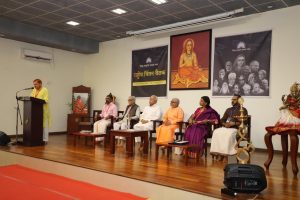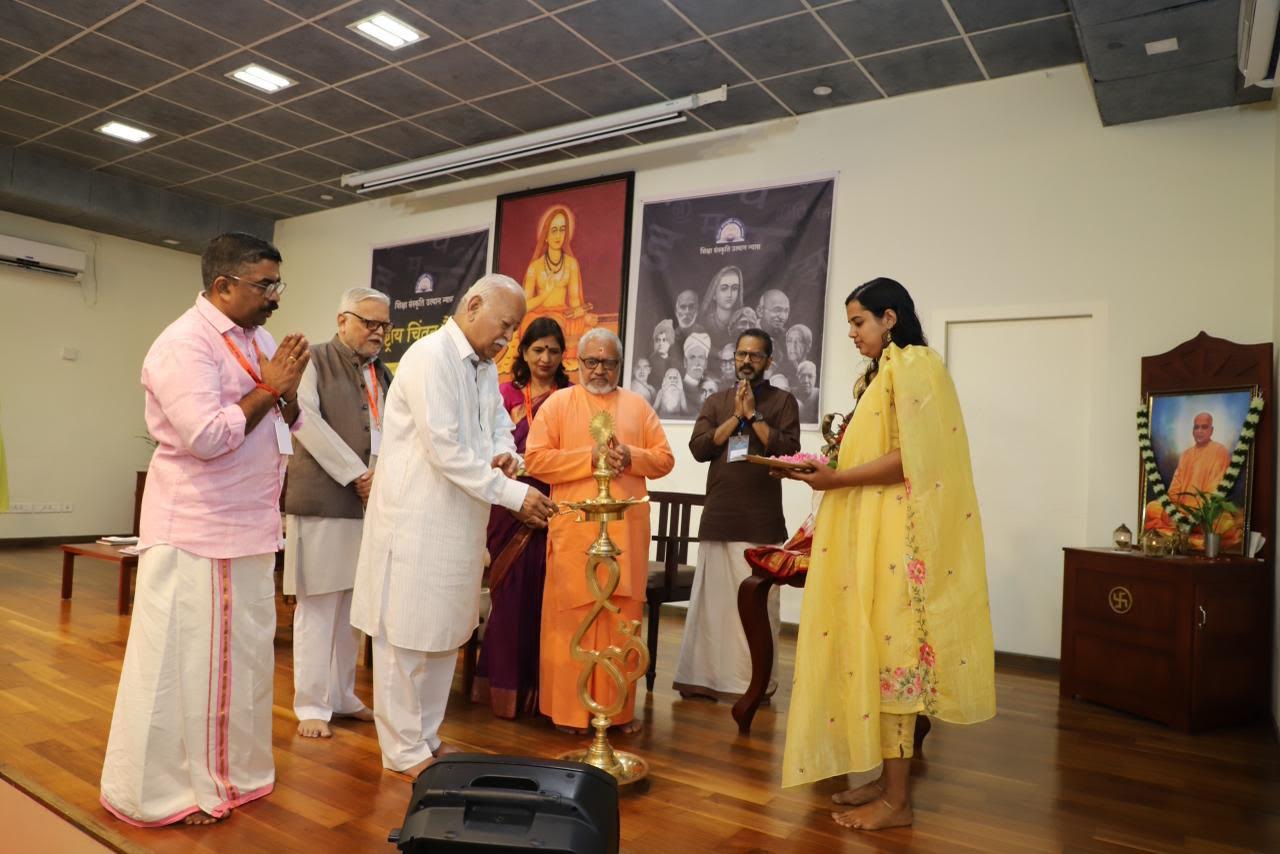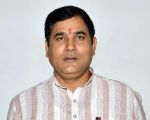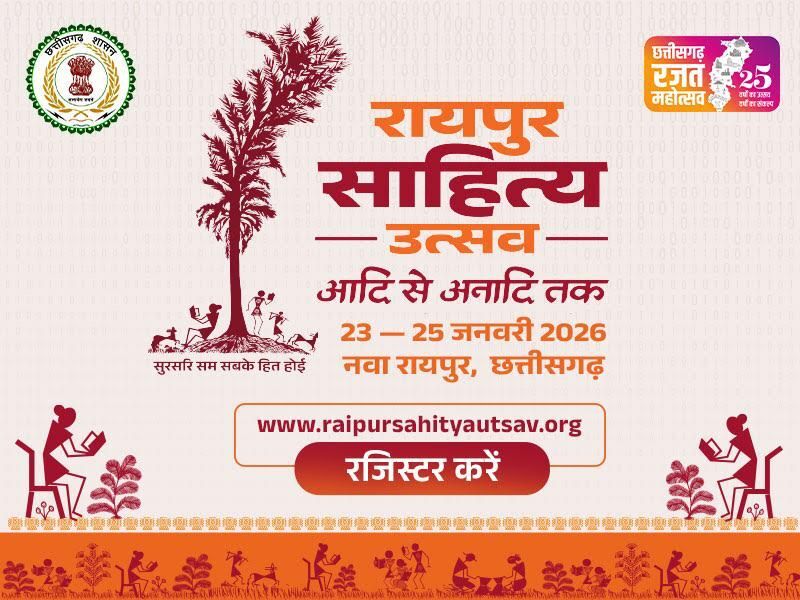• Four-day education-focused program by Dr. Mohan Bhagwat begins in Kerala
• Four-day national meeting begins at Adi Shankara Nilayam, Kerala
• National Chintan Baithak of Shiksha Sanskriti Utthan Nyas commences
• 100 selected karyakartas from across Bharat participate in the gathering
The event is being held in the special presence of Dr. Mohanrao Bhagwat, Sarsanghchalak of Rashtriya Swayamsevak Sangh (RSS)
Kalady ( Kerala) : There must be a balance of materialism and spirituality in education. The work of the Nyas and the transformation of Bharat’s education are not separate tasks. We must focus not only on identifying problems but also on progressing with solutions. We are here to review and plan for the Nyas’s work—both programmatic and organizational—for the next five years.
This was stated by Dr. Atul Kothari, National Secretary of Shiksha Sanskriti Utthan Nyas, during his opening remarks at the inaugural session of the National Chintan Baithak held at Adi Shankara Nilayam, Kalady.
He further added that no single organization, institution, or platform can bring about transformation in the education system of Bharat alone. A united, collective effort is required.
This is the third national Chintan Baithak of the Nyas –
• The first was held in Vrindavan in 2012
• The second in Coimbatore in 2019
• And the third is now being held at the birthplace of Adi Shankaracharya in Kalady
Dr. Kothari affirmed that from its inception, the Nyas has been committed to providing an alternative in Bhartiya education. The task is so vast that events like Gyanotsav, Gyan Kumbh, and Gyan Sabha alone are not enough. We must continue working to expand and deepen this mission.

Acharya Vivittananda, head of Chinmaya Mission, Kerala region, stated: “It is our good fortune that such a vital educational brainstorming session—focused on bringing foundational changes in Bharat’s education—is being held on our campus. Our Bhartiya knowledge tradition is the foundation of our unity.
Your efforts are bringing an end to the Macaulay system. I am confident that because of your work, the state of education will change, and the Indianization of education will be realized throughout the country.”
Dr. Pankaj Mittal, Chairperson of Shiksha Sanskriti Utthan Nyas, in her address during the inaugural session, said: “Since its inception, the Nyas has strived to rejuvenate Bhartiya education by blending traditional knowledge systems with modern-day needs, offering a meaningful alternative to the current system.
In Bharat, the aim of education was never limited to livelihood—it was a path toward becoming a complete human being. That is the direction in which we must take our education system.”
Sharing details of the inaugural session, Atharva Sharma, National Media Head of the Nyas, stated that the National Chintan Baithak was formally inaugurated by P.Pu. Dr. Mohan Bhagwat, Sarsanghchalak of the Rashtriya Swayamsewak Sangh.
Also present on the occasion were Swami Vivittananda of Chinmaya Mission, Dr. Pankaj Mittal (Chairperson of the Nyas), A. Vinod (Convenor, Nyas), and Shri Sudarshan from Chinmaya Mission.
The session was conducted by Shri Sanjay Swami, Co-Convenor of the Nyas.
In the second session of the first day, Dr. Atul Kothari reflected on the journey of the Nyas and stated: “When distortions in education became evident, a nationwide ‘Shiksha Bachao Andolan’ was launched. It was after that effort that Shiksha Sanskriti Utthan Nyas was formed to offer a constructive alternative. Initially, the Nyas focused on six core areas. Today, it works across 11 Vishay, 3 Aayam, 3 Karya Vibhag, and 2 Abhiyan. Our approach is not just to deliver speeches but to enter the system and bring change from within.”
Dr. Kothari reiterated that over the years, Shiksha Sanskriti Utthan Nyas has been continuously working in the field of education to awaken the soul of Bharat through its nation-centric efforts. This meeting is a powerful continuation of that journey.
The Nyas believes that grassroots change in education is the primary responsibility of society. For this, joint efforts of society and government are essential. Those directly involved in the education sector have a key role to play, only then can foundational changes be made in the system.This ongoing work is part of a nationwide campaign and movement. Making education a national priority is imperative.





